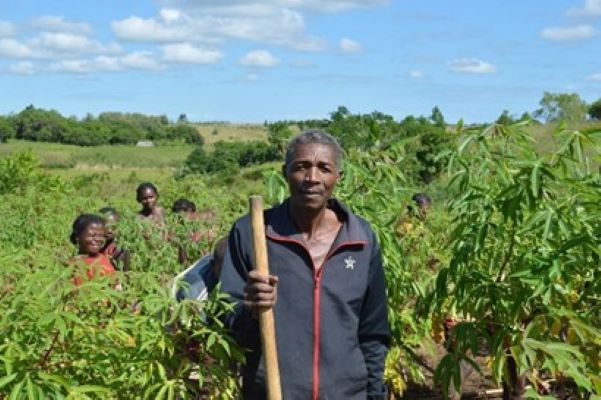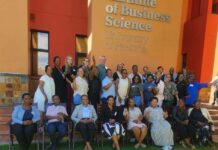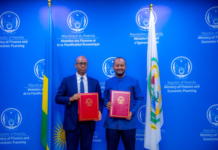
In recent years, Southern Madagascar has experienced below-average rainfall, leading to a prolonged, severe drought and devastated crops — sending more than one million people into hunger and malnutrition of near-famine proportions. This is because global heating is shrinking growing seasons and increasing the frequency and severity of cyclones which wipe out food stocks; thereby, exacerbating chronic malnutrition and food insecurity in Madagascar. However, in the communities south of Farafangana, climate-adaptive farming has held promise.
Since 2019, Health In Harmony, an Oregon-based nonprofit, has partnered with communities in the Manombo Rainforest, located in southeastern Madagascar to implement regenerative agriculture, particularly focused on enhancing crop variety, integrating climate-resilient crops and crop management.
At the request of these communities, the organization introduced new varieties of crops that allow farmers to grow sweet potatoes in three months rather than nine, and to harvest rice two to three times a year, rather than once every eight months. Trainers showed communities how to make fertilizer using a mix of dead plants and dung from zebu, a type of cattle. In one village, the organization replaced the leaky wood in an irrigation channel with concrete, a move that helped protect rice paddies during a severe drought last year.
The result was – and continues to be — higher-yield agriculture and more nutrient-dense diets. Health In Harmony is also practicing agroforestry in the region, which focuses on growing a canopy of trees above crops. This enables communities to protect crops of marketable spices – such as vanilla, cloves, pepper, cinnamon, jackfruit and coffee – that provide a sustainable income for community members and promote a healthy environment.
Community members can now not only feed their family, but also have food enough to sell in the marketplace. According to Health In Harmony-Madagascar Program Director Dr. Andry Tsirimanana, MD, these climate adaptive measures not only feed families, but take the pressure of resources from climate-critical rainforests, which were previously endangered by swidden agriculture. Now regeneration of the rainforest is possible.
Victor Mehevera, 54, a fisherman in the village of Andrafia (a sub-village of Tsaratanana, Farafangana), used to work for other farmers’ fields to support his family. Now, after receiving agricultural training from Health In Harmony-Madagascar, he has been able to grow highly productive crop seeds of yam, rice, cassava and vegetables. He also distributes the seeds from the school field to the rest of his community so that they can also multiply them and feed their families.
“Adopting these improved agricultural techniques has increased food production, and ultimately alleviated and, in some cases eradicated, food insecurity in my village,” said Mehevera. “This process has been a virtuous cycle. Now that my community is well-fed and healthier, we’re producing even more. Partnering with Health In Harmony has been good for our crops, our people, and our Earth.”








[…] Source link […]
Comments are closed.